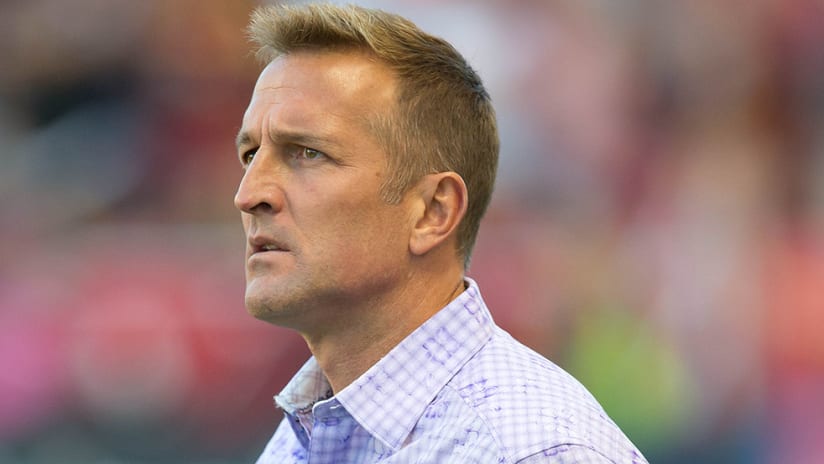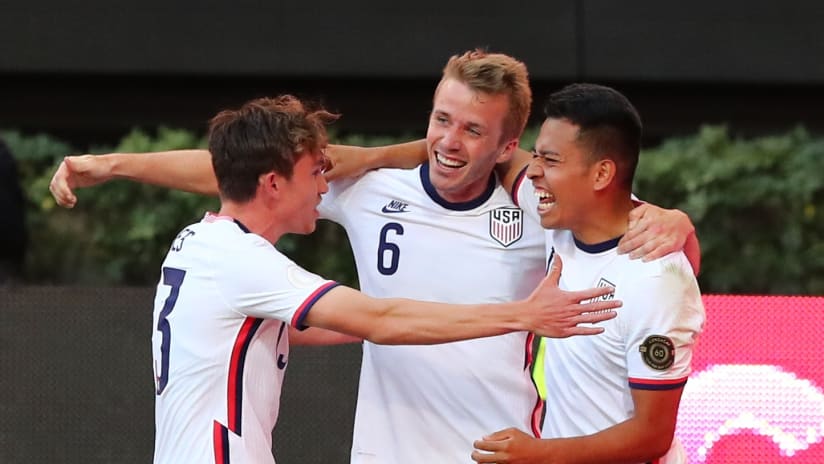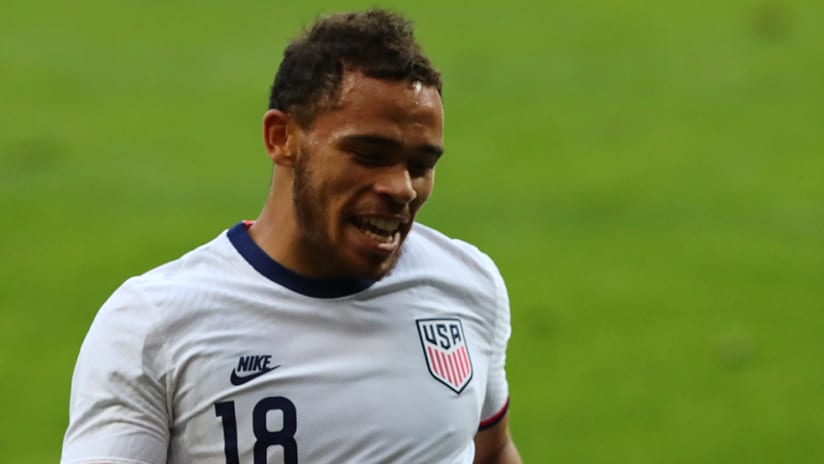Concacaf’s suspension of the 2020 Olympic qualifying tournament in Guadalajara, Mexico last month hit Jason Kreis’ US U-23 national team suddenly.
How suddenly? Try “we’re in the van en route to the field” suddenly.
“We were on our way to a training session, and got a phone call from an administrator who said Concacaf had just canceled the whole thing,” Kreis related to MLSsoccer.com this week. “So we turned around from that training session and quickly, within the next 24 hours, had gotten everybody on flights back home.”
With the coronavirus pandemic seizing most of the planet in its grasp and large gatherings like sporting events determined to be potentially deadly flashpoints, it was an expected decision. Not long after, the Tokyo Olympics were postponed to summer 2021, and now Kreis and his squad are left to watch, wait and seek out silver linings like everyone else.
“In general, in the process of building any team, time is always going to be a benefit,” said Kreis, whose team were a week out from their first qualifying match when they got the word. “That time you can spend with those players to develop some real culture and team chemistry and real tactical understanding is always going to be a good thing.
“The drawback as I saw it was, I felt like we were in a really nice place,” he added. “The guys were in a really good spot from the physical and mental side of things, a really good spot to perform in another week and put their best foot forward to qualify. So there's a chance that we may have lost a little bit of momentum and opportunity there, but we have to believe that we can rebuild that.”
While there’s been relatively little by way of updates since then, the US U-23s got some good news this week when Olympic officials announced that the competition's age eligibility cutoff date wouldn't be moved, meaning that players born in 1997 remain in the mix for selection. Last month’s US qualifying roster featured nine '97-born players.
“I’m really, really pleased and I think they made a fair and just decision by allowing them to do so,” said Kreis. “Essentially we look at it now and said, 'We’ve got a year and a few months’ longer pathway that we would have had.'”
Conversely, that also cranks up competition for spots, opening the door for younger players to climb into contention. And Kreis, a 2009 MLS Cup winner with Real Salt Lake who’s currently in charge of Inter Miami’s academy and second team, warns that no one should take their spot for granted.
“Our eyes are open,” he said. “In soccer as in anything else in life, things change on a day-by-day, week-by-week, month-by-month basis. So when the next qualification tournament is decided … we will let form and those sorts of things dictate the decision on who will be the team who will represent us at that time. So nothing is locked in, just as it wouldn't have been even if the Olympics had happened this summer.”
Given how FIFA rules don't require clubs to release their players for U-23 action, Kreis is happy to have more options. Looking ahead, he expects to face new obstacles in his selection process given the likelihood of clubs adopting compressed, hectic match schedules once the pandemic subsides.
“There's obviously been conflict along the way between clubs and federation to try to always get the players you want," Kreis noted. "So you can see that now with a compacted schedule and probably what looks like two games a week for the rest of or for the whole season.
“I would have to think, from the European point of view as well as MLS’s point of view, once the seasons get started there's going to be games all the time. So whereas you were looking at a window of maybe bringing the player out from an MLS team or from a European team and asking them to miss a game or two, you may be thinking about a greater number. So the challenge could become greater.”














